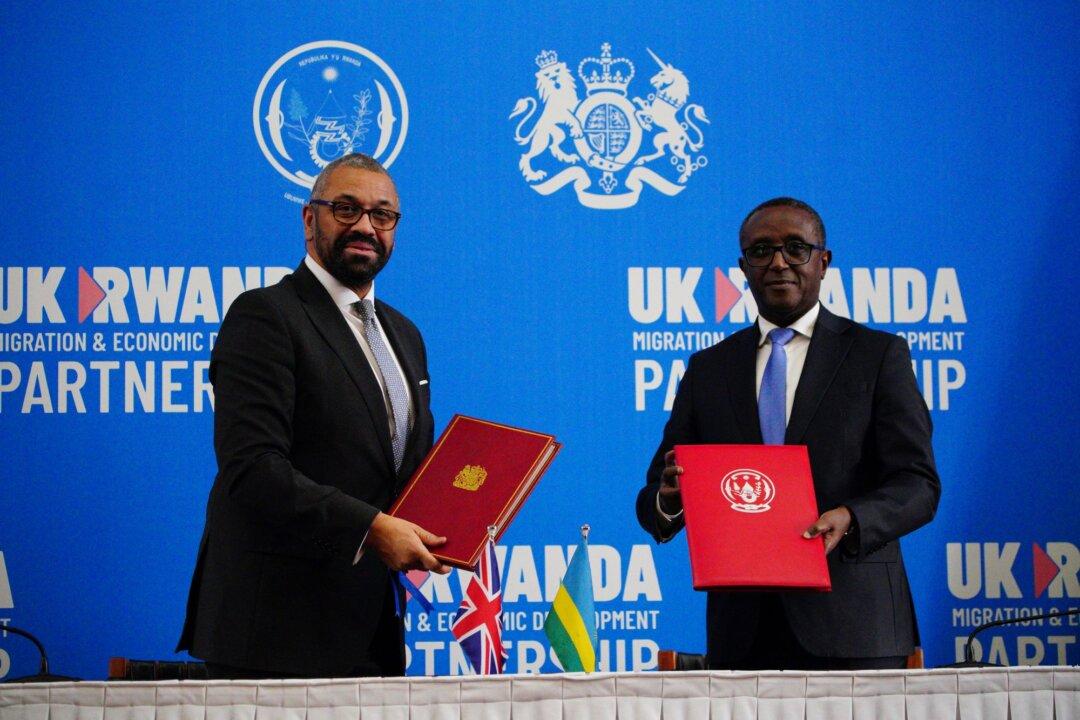James Cleverly said he has “a very high degree of confidence” that Rwanda will abide by the terms of its migration treaty with the UK.
The foreign secretary was questioned by peers on the International Agreements Committee on Tuesday about the treaty he signed in Kigali two weeks ago on relocating the UK’s illegal immigrants, including asylum seekers, to Rwanda.





